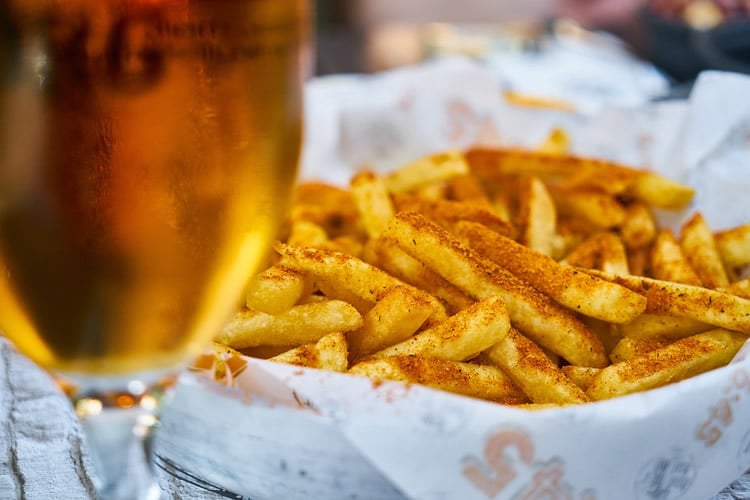Summary: A shared brain network may explain why high alcohol consumption and junk food cravings go hand in hand.
Source: APS
New research in mice suggests that a shared circuit in the brain could be one reason why heavy drinking and high-fat “junk food” cravings go hand in hand. The findings will be presented today at the American Physiological Society’s (APS) annual meeting at Experimental Biology 2019 in Orlando, Fla.
“Obesity and alcoholism, two of the most common chronic disorders in the United States, may be behaviorally linked as binge intake of palatable diets, such as diets high in fat, and binge alcohol intake may utilize the same neurocircuitry,” wrote researchers from the Pennsylvania State University College of Medicine. Their hypothesis is consistent with previous research that suggests alcohol consumption affects the same areas of the brain that control overeating.
The research team studied eating and drinking patterns of three groups of early adult male mice:
- One group had continuous access to a high-fat diet and limited access to drinking water mixed with alcohol (four hours per day, four days a week) (“high-fat diet”).
- The second group followed a normal rodent diet and the same limited access to the alcohol beverage (“normal diet”).
- The third group had limited access to both the high-fat diet–with a normal diet during non-access periods–and the alcohol beverage (“binge diet”).
The research team incrementally increased the ratio of alcohol to drinking water from 10 to 20 percent over the course of eight weeks. All animals were also offered free access to drinking water throughout the trial.

The binge diet group showed a weight-gain and -loss cycle associated with binge eating. Those mice also drank more alcohol than water during their access period, showing a clear preference for alcohol. The other groups both drank less alcohol than the binge diet group. Although long-term outcomes in humans have not been studied, these results suggest that limiting access to foods high in fat promotes binge-like eating patterns, which in turn activates the brain to binge on alcohol. “Given the increasing rates of binge drinking and overall obesity rates in the U.S. in recent years, we think this new mouse model will be of critical importance in the near future,” wrote Caitlin Coker, MS, first author of the study.
Source:
APS
Media Contacts:
Anne Frances Johnson – APS
Image Source:
The image is in the public domain.
Original Research: Caitlin Coker, a PhD candidate at Pennsylvania State University College of Medicine, will present “Cross-sensitization to binge alcohol intake following binge intake of palatable diets” as part of the symposium “Effects of diet on emotion and motivated behavior” on Monday, April 8, in Orlando County Convention Center Room W311D. Experimental Biology 2019.






